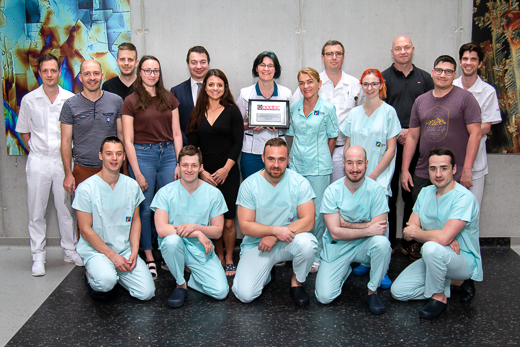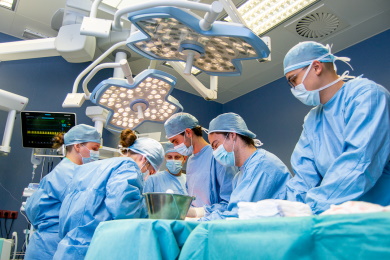Prague
When flying to the Czech Republic, you will probably arrive at the Václav Havel Airport in Prague (red mark on the map). To get to Pilsen, which will take you about two to three hours, you can take either a coach or a train.
From the airport, bus line nr. 100 will take you to the Bus Station Praha-Zlicin (yellow mark) where you can take the coach to Pilsen or continue by a subway (in Prague it is called the Metro) line B to the Main Train Station Prague (blue mark). Trains to Pilsen depart from there.
Show larger map.
Pilsen
In Pilsen, the coach from Prague usually stops at the Bus Station Divadlo Alfa (yellow mark on the map) and it terminates at the Main Bus Station Pilsen (red mark). The train stops at the Main Train Station Pilsen (blue mark).
Your accommodation will be provided at Safrankuv pavilon (Alej Svobody 31, 323 18 Pilsen, green mark on the map).
Convenient public transport lines in Pilsen can be found via the Pilsen City Transport Company journey planner.
Show larger map.

School Coorditator
Prof. Dr. Václav Liška, Ph.D.
Managers
| Petra Havlíčková, B.Sc. | Michaela Langová |
| Lenka Kuberková | Jitka Škrabalová, M.Sc., M.A. |
International Lecturers
Prof. Dr. med. Pierre-Alain Clavien, Ph.D.
Klinik für Viszeral- und Transplantationschirurgie, Universitätsspital Zürich, Switzerland
Prof. Dr. Inge Herrmann, Ph.D.
Department of Mechanical and Process Engineering, ETH Zürich, Switzerland
Dr. Alessio Naccarati, Ph.D.
Italian Institute for Genomic Medicine, Candiolo (TO), Italy
Dr. M. M. A. Monique Verstegen, Ph.D.
Erasmus Medical Center, Rotterdam, Netherlands
Dr. Alexandre Hermann Christos Anthis, Ph.D.
Department of Mechanical and Process Engineering, ETH Zürich, Switzerland
Prof. Dr. Ondřej Slabý, Ph.D.
Department of Biology, Faculty of Medicine, Masaryk University, Brno, Czech Republic
Faculty Lecturers
Prof. Dr. Jan Beneš, Ph.D.
Department of Anesthesiology and Resuscitation
Prof. Dr. Jaroslav Hrabák, Ph.D.
Department of Microbiology
Prof. Dr. Hynek Mírka, Ph.D.
Department of Imaging Methods
Prof. Dr. Jiří Moláček, Ph.D.
Department of Surgery
Prof. Dr. Milan Štengl, Ph.D.
Department of Physiology
Prof. Dr. Zbyněk Tonar, M.Sc., Ph.D.
Department of Histology and Embryology
Senior Lecturers
| Dr. Jan Brůha, Ph.D. | Dr. Ondřej Vyčítal, Ph.D. |
| Lenka Červenková, MVDr., Ph.D. | Dr. Pavel Krystl |
| Petr Hošek, M.Eng., Ph.D. | Maria Stefania Massaro, M.Eng |
| Miroslav Jiřík, M.Eng, Ph.D. | Dr. Ilya Matsviayonak |
| Vladimíra Moulisová, M.Sc, Ph.D. | Ekaterina Panova, M.Eng |
| Dr. Richard Pálek, Ph.D. | Dr. Robert Polák |
| Dr. Jáchym Rosendorf, Ph.D. | Dr. Sima Šarčević |
| Dr. Jan Ševčík | Dr. Daniel Vydra |
| Dr. David Volák | |
Junior Lecturers
| Tomáš Polenda | Julie Jarolímová |
| Daniel Lehner | Eliška Zaengerová |
| Martin Faško | Hanna Nachoukina |
| Yehor Pankratiev | Heorhii Storozhenko |
| Anna Štrobachová | Ondřej Zábran |
| Lucie Bludovská | Daniel Prančl |
| Karolína Stinglová | Kristian Vaněk |
The programme of SSES 2025 is shown below and available for download in PDF here.
The programme of WWVS 2020 can be downloaded in PDF by clicking here.
SSES 2025: 30 June to 11 July 2025 in Pilsen, Czech Republic | Application is now closed.
Dear Students,
 Let me briefly introduce you to the goals of our Summer International School of Experimental Surgery and Winter Workshop of Visceral Surgery. Courses of this type are rare in the context of European higher education, and that is why I believe the SSES and WWVS will greatly contribute to the increase and expansion of curricula of students with a strong interest in surgical experimental work.
Let me briefly introduce you to the goals of our Summer International School of Experimental Surgery and Winter Workshop of Visceral Surgery. Courses of this type are rare in the context of European higher education, and that is why I believe the SSES and WWVS will greatly contribute to the increase and expansion of curricula of students with a strong interest in surgical experimental work.
The Summer School of Experimental Surgery is open to (pre-graduate) medical students of third or higher year of study, it lasts two weeks and aims not only to demonstrate experimental surgery in practical exercises, but also to introduce you to the possibilities, limits and boundaries of the field. Considerable time and space is devoted to methods that can partially replace our experimental work or enhance it with an extra dimension – such as software modeling, working with cell cultures, etc. The curriculum also includes perioperative care of experimental animals, anesthesia, surgical techniques, preparation of animal models, experimental radiology, evaluation of the experiment (histological, biochemical, statistical methods, etc). Great emphasis is also put on the ethical aspects of experimental surgical procedures with regard to the principle of the 3R's (reduction, refinement, replacement).
The Winter Workshop of Visceral Surgery is a more intensive course for medical residents and veterinarians up to 2 years after graduation. Theoretical lectures are focused solely on surgery in greater detail and, adequately to the greater previous experience of the students, basic surgical techniques are briefly reviewed rather than taught from the ground up. The focus of the workshop is on practical training, summing up to a total of more than 24 hours at the operating theatre over the course of one week.
We are looking forward to seeing you at SSES or WWVS!
On behalf of the Preparatory Committee
Prof. Vaclav Liska, M.D., Ph.D.




